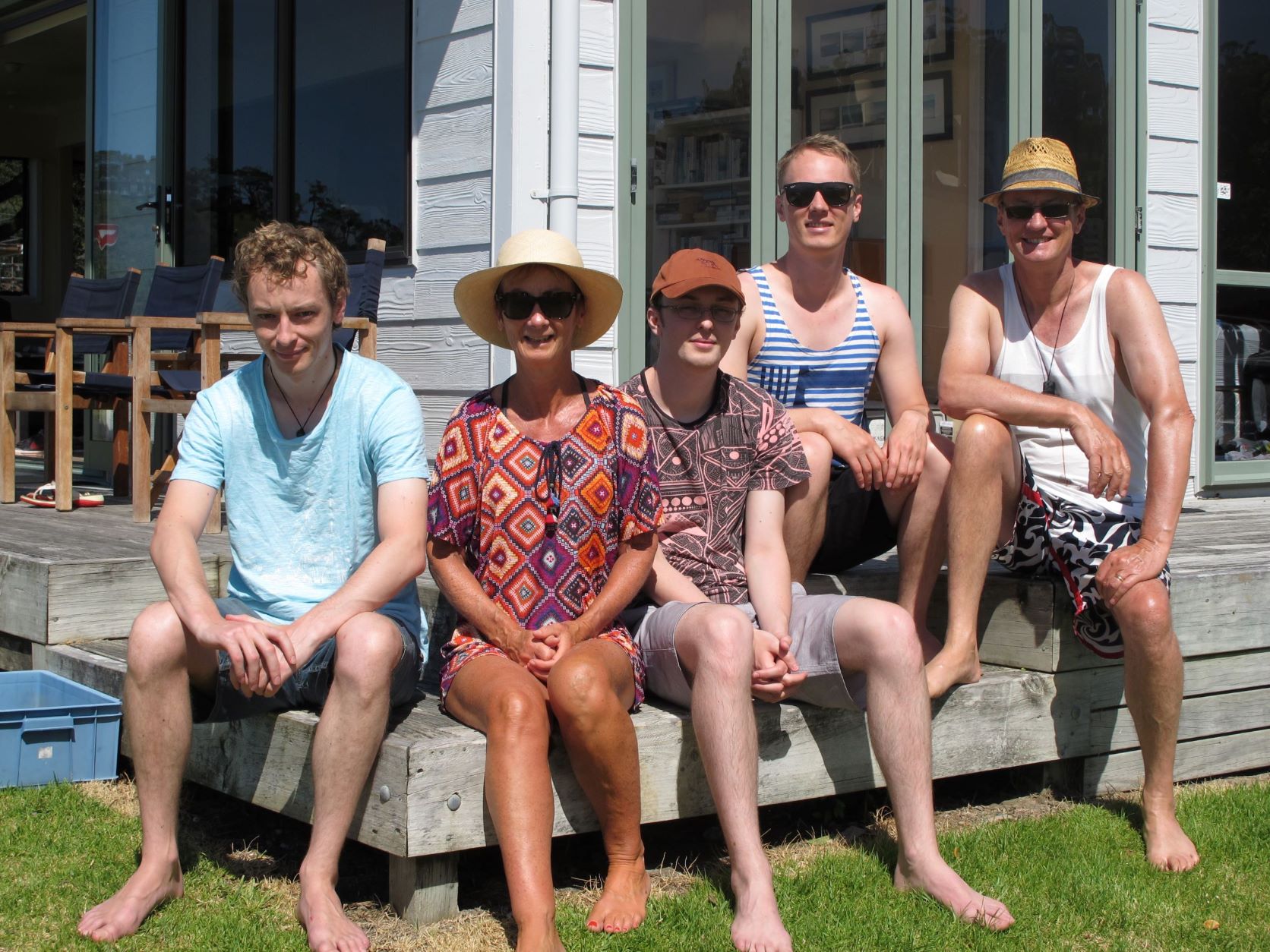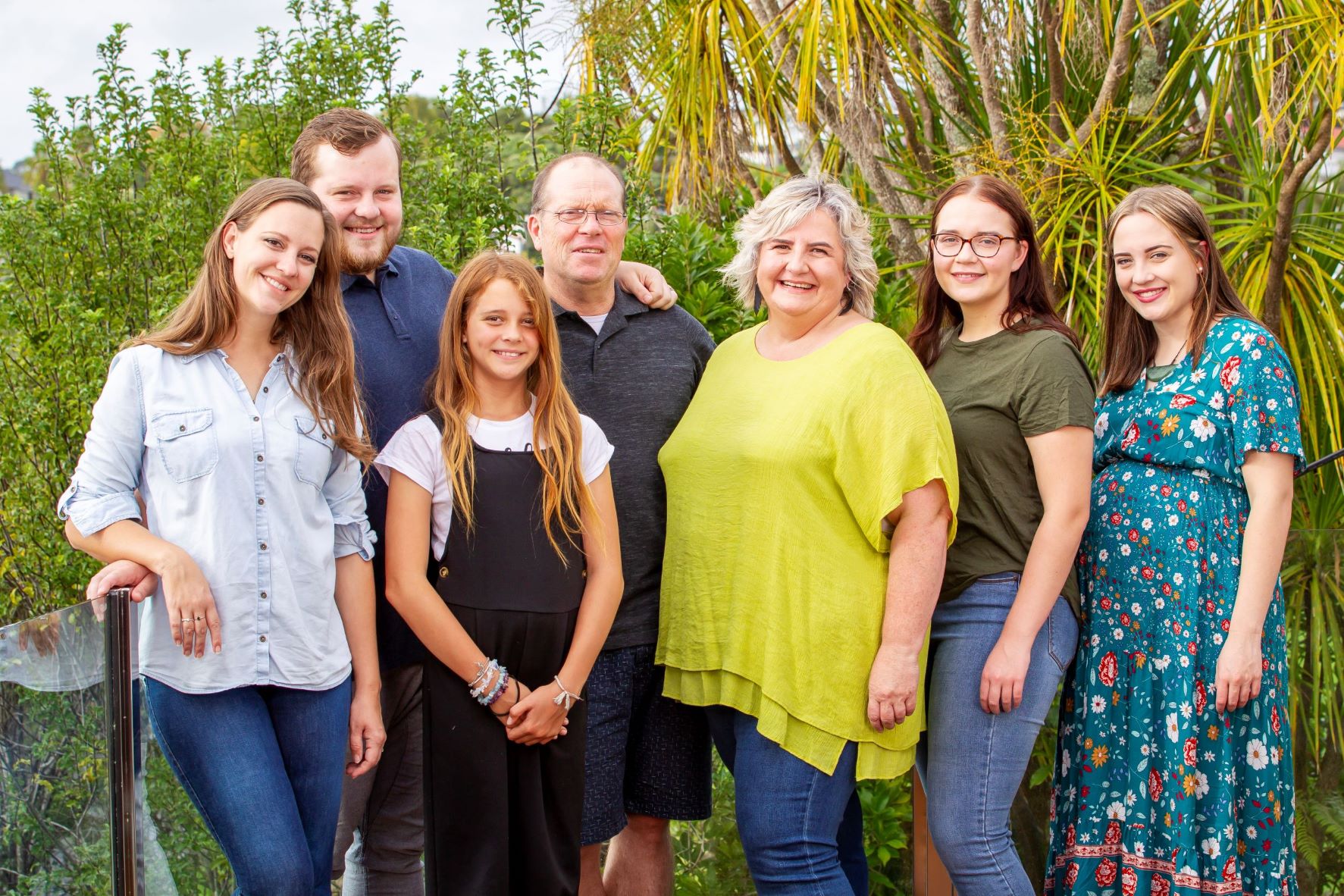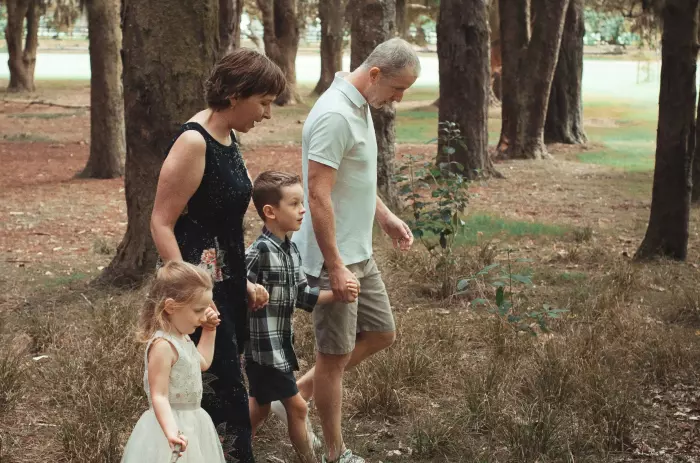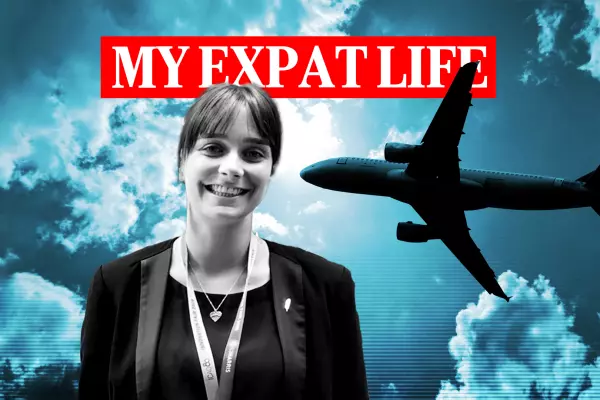When a family member is dying or possibly dying, everything changes.
Time moves differently as the terminally ill loved one and those around them try to maintain some degree of normality while dealing with new health, financial, and emotional burdens.
In many cases, as money and energy become scarcer, the last thing that will cross their minds is to pack up and take a family trip to the beach. But it is also the time when a family need it most.
Doug Hanna saw the value of a week away many years ago.
“A friend of ours from Christchurch, his wife had brain cancer and he said, ‘We want to do a North Island trip while she's still healthy enough. Could we stay at your holiday house?’
"We said, 'Of course.'
“After she passed, many months later he sent us a gift and a note and he said that stay at the house on the beach was the highlight of their holiday. That planted the seed.”
Counsellor's feedback
Hanna went on to work with North Haven Hospice in Whangārei, arranging for grieving families to have some time away in his holiday home, free of charge.
He said that what surprised him the most was the hospice counsellor’s feedback on how helpful having extended time away from the daily grind was for the families.
“There's nothing like waking up in the morning and you're there together, and you hear the surf and you get up and you spend all day there, and then you go to sleep to the sound of the surf and it's really special.
 Doug Hanna and his family have created wonderful memories during vacations at their holiday home. (Image: Supplied)
Doug Hanna and his family have created wonderful memories during vacations at their holiday home. (Image: Supplied)In February last year, Hanna saw a TV news story about TimeOut, a charity set up to do exactly what he himself had been doing for some years. He is now a member of the TimeOut board.
“We always try to offer up to six nights, and I think over that extended period, it's quite a lot of time together. And that's what's so cool about it.”
Time together, time without pressure, time given as time is disappearing – it's valuable beyond measure.
A little time-out
There are tens of thousands of holiday homes around Aotearoa New Zealand, many of which are empty for hundreds of days of the year.
Every week that they sit empty is a week they could be used to provide a family with some reprieve from the daily pressures of life.
Ronda Amende was diagnosed with cancer in 2013 and is currently in remission.
During her treatment, she and her family were offered a stay in a holiday home and found that time to be so important that, in 2016, she founded TimeOut to help others enjoy the same experience.
 Ronda Amende got such comfort out of the time she spent with her family at a holiday home that she launched the TimeOut trust so others dealing with a potentially terminal diagnosis could have the same experience. (Image: Supplied)
Ronda Amende got such comfort out of the time she spent with her family at a holiday home that she launched the TimeOut trust so others dealing with a potentially terminal diagnosis could have the same experience. (Image: Supplied) Doug Hanna, too, has been able to help people through working with TimeOut, and next month will see the 60th stay donated to a worthy family.
He said his family has created some of their best and fondest memories in their holiday home, and knowing that he is able to share it with people who need it the most gives him a “hell of a buzz”.
“When you donate the use of your holiday home, you feel like you're gifting part of yourself. It's like a soul place for the family, and so sharing that with another family and allowing them to have a week in your special soul place, it has a real warm heart feeling.”
Costs minimal
While donating time in a holiday home is easiest for those who are already renting theirs out for short-term stays, any owners are welcome to get in touch with TimeOut to see how they can help.
The costs are minimal – just the usual cleaning and power expenses.
TimeOut offers advice for donors and will even provide a contract template to make the process as easy as possible.
The charity's team are always willing to pick up the phone to answer questions or deal with concerns.
Donating the use of a holiday home is ideal for those looking for an act of altruism that connects them directly with those they are helping, but, of course, monetary donations to help with operational costs are also appreciated.
If you or someone you know is facing the challenge of a terminal illness and could use a week away, the TimeOut team may be able to help.















